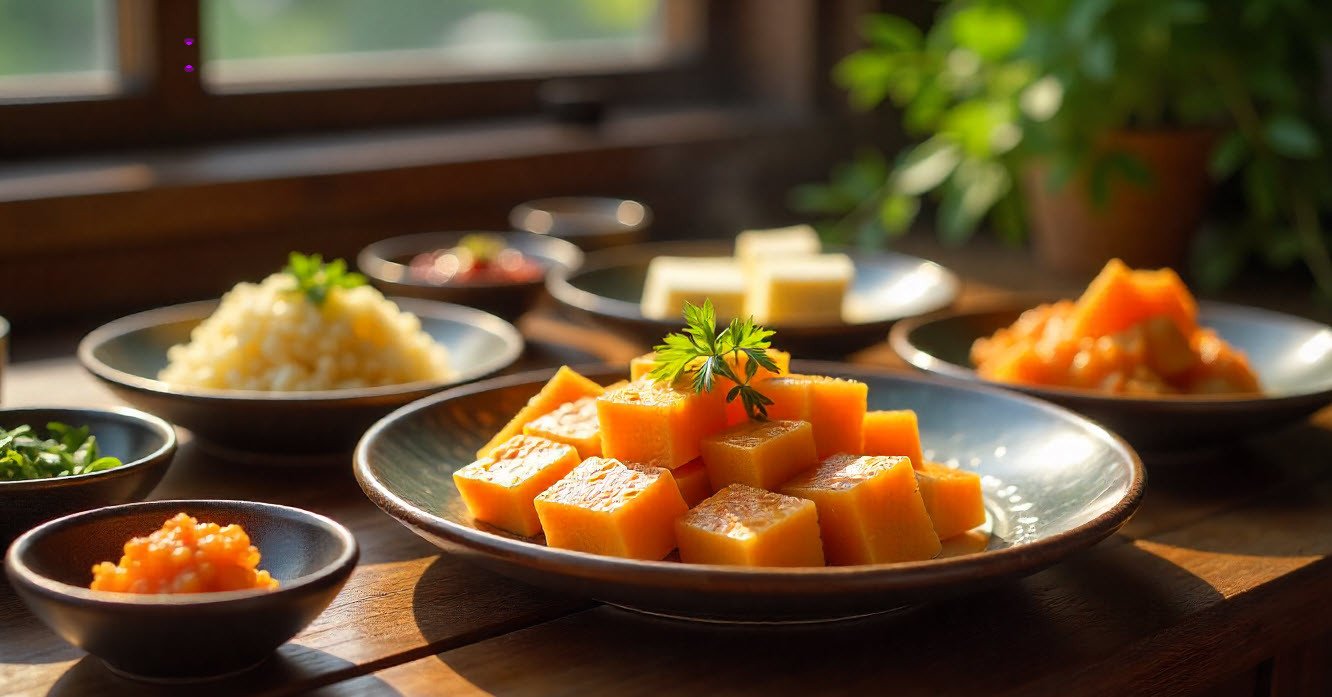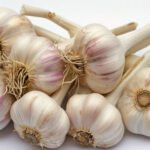For centuries, the inhabitants of the Japanese island of Okinawa have been renowned for their exceptional longevity. This small island in the Ryukyu archipelago has one of the highest concentrations of centenarians in the world. While genetics and a positive outlook on life play a role, researchers are convinced that the traditional Okinawan diet is a major contributor to their long and healthy lives.
But what exactly is the Okinawa diet, and what makes it so special? In this post, we'll delve into the origins, principles, and health benefits of this fascinating way of eating.
What is the Okinawa Diet?
This traditional diet is a low-calorie, nutrient-dense way of eating that is primarily plant-based. It emphasizes a high intake of vegetables, legumes (especially soy), and a moderate amount of fish. Unlike the rest of Japan, the staple carbohydrate in the traditional Okinawan diet is not rice, but the sweet potato.
A key principle of the Okinawan way of eating is the concept of "hara hachi bu," a Confucian teaching that instructs people to eat only until they are 80% full. This practice of mindful eating and calorie restriction is believed to be a significant factor in the longevity of the Okinawan people.
Origins of the Diet
The Okinawan diet has its roots in the unique history and culture of the Ryukyu Islands. Influenced by Chinese and Southeast Asian trade, the diet incorporates a wide variety of plants and spices. The concept of "ishoku dogen," or "food as medicine," is central to the Okinawan food culture, with a strong emphasis on the healing properties of food.
Historically, the Okinawan people were not wealthy, and their diet was based on what they could grow and forage locally. This led to a reliance on hardy, nutrient-rich foods like sweet potatoes, which thrive in the island's subtropical climate.
What Does the Diet Consist Of?
The traditional Okinawan diet is rich in a variety of nutrient-dense foods:
- Vegetables: The diet is abundant in green and yellow vegetables, including bitter melon (goya), daikon radish, cabbage, carrots, and seaweed (kombu and wakame).
- Legumes: Soy products like tofu, miso, and edamame are staples, providing a high-quality source of plant-based protein.
- Sweet Potatoes: The purple-fleshed Okinawan sweet potato is a cornerstone of the diet, providing complex carbohydrates, vitamins, and antioxidants.
- Fish: Fish, rich in omega-3 fatty acids, is consumed in moderation, typically a few times a week.
- Pork: While pork is a part of the Okinawan culinary tradition, it is eaten sparingly, often in small amounts to flavor dishes.
- Herbs and Spices: The Okinawans use a variety of herbs and spices, such as turmeric and mugwort, which have anti-inflammatory and antioxidant properties.
- Tea: Jasmine tea is a popular beverage, consumed throughout the day.
The diet is notably low in:
- Red meat
- Processed foods
- Refined grains
- Sugar
- Dairy
Why is this Diet Considered to be so Good?
The health benefits of the Okinawa diet are numerous and well-documented:
- Longevity: The most obvious benefit is the increased lifespan and high number of healthy, active centenarians in Okinawa.
- Reduced Risk of Chronic Diseases: The diet is associated with a lower risk of age-related diseases, including heart disease, cancer, and diabetes. The low intake of saturated fat and high intake of antioxidants and fiber contribute to this protective effect.
- Healthy Weight Management: The low-calorie, high-fiber nature of the diet, combined with the practice of "hara hachi bu," helps to prevent obesity and maintain a healthy weight throughout life.
- Anti-Inflammatory and Antioxidant Effects: The abundance of plant-based foods in the diet provides a rich source of antioxidants and anti-inflammatory compounds, which help to protect the body from cellular damage and reduce inflammation.
- Improved Gut Health: A recent study found that following the diet for 12 weeks resulted in improvements in gut health and a reduction in blood sugar, insulin, and cholesterol levels.
Summary
The diet is more than just a way of eating; it's a lifestyle that emphasizes whole, nutrient-dense foods, mindful eating, and a deep respect for the healing power of nature. By incorporating the principles of the Okinawan diet into your own life, you can take a significant step towards improving your health, well-being, and longevity.
If you require assistance with this article, please Contact Us














